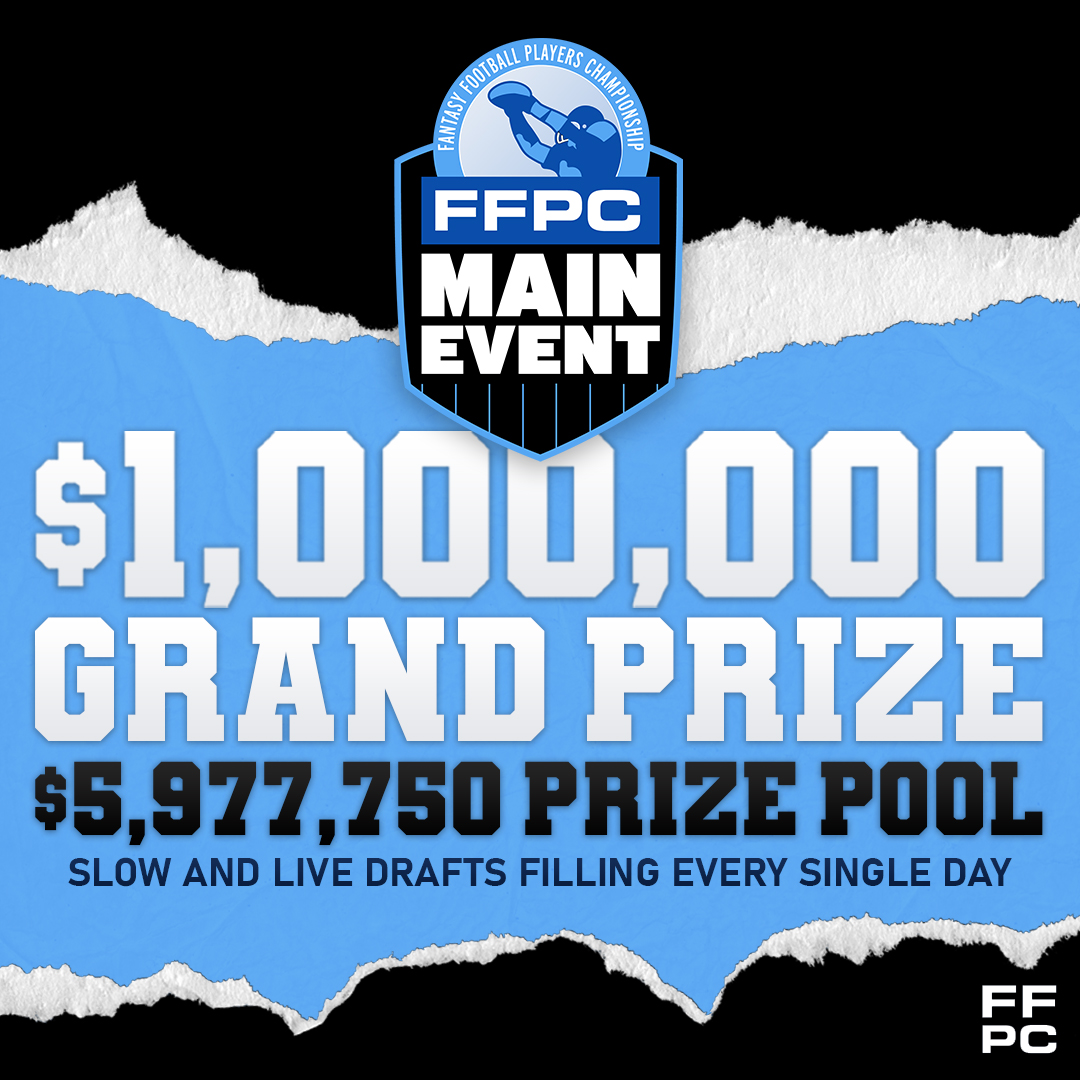NFL.com’s fantasy football glossary defines the term sleeper as “typically, a late-round pick or waiver-wire selection who exceeds his statistical expectations and becomes a prominent option in fantasy leagues.” Fortunately, we as fantasy players aren’t required to subscribe to such a rigid definition of “sleeper.” Unfortunately, that’s led to the blatant misuse of the word within the fantasy football community over the years.
It’s true that a sleeper doesn’t have to be a late round pick or a waiver wire player, but it should also be true that a real sleeper can’t be somebody that: A) everyone in your draft is already going to want, and B) mainstream fantasy gamers already expect will perform. Type in “Brandin Cooks sleeper” into Google and you’ll see a number of articles pop up on the first page that label him as such for the 2015 season. I don’t care if he finishes as the highest scoring fantasy receiver, a player that’s going to be drafted in every single fantasy football league in existence doesn’t qualify as a legitimate sleeper. With all of the fantasy football content you can find online these days, the true sleeper has become something of a dying breed in the industry.
Enter Tyler Gaffney: Last Action Hero Sleeper
Unlisted on the New England RB depth chart on Rotoworld.com, Tyler Gaffney qualifies as one of 2015 fantasy football’s actual sleepers. Outside of people who participate in MFL10s, dynasty or deep redraft leagues, Gaffney is a virtual unknown. Hell, you barely get any results when Google “Tyler Gaffney sleeper.” Yet, Brandin Cooks is allowed to have that title thrust upon him by a community that already expects him to be good.
(That sound you heard in the distance was a hand palming a face.)
In a characteristically crafty move, Bill Belichick and the Patriots claimed Gaffney after Carolina attempted to sneak the 6th-round draft pick through waivers and onto the injured reserve. The fact that Belichick has stashed him for nearly a year tells us that he’ll receive a fair chance to earn a meaningful role in the offense. Since he’s yet to play a down at the NFL level, we need to refer to his college production and workout metrics to properly gauge how he fits best on this Patriots team.
In a Rotoworld player blurb from February 21st, it was opined that Gaffney is a “grinder with little explosion and underwhelming college tape.” Let’s default to the Player Profiler in an effort to debunk these theories.
Gaffney the Underwhelming
While it’s true that Gaffney only had one year of solid collegiate production, the stat counting crowd will be excited to know that he put up 1,709 rushing yards and 21 touchdowns in that season, along with 15 catches for 86 yards and an additional score. These figures were good for a 79th percentile college dominator rating of 37.4 percent, in a BCS conference no less.
It could be seen as an issue that it took him 330 carries to get there, which would help explain his 28th percentile 5.2 yards per carry. That doesn’t bother me because he recorded that season a year after leaving the Stanford football team to play professional baseball for the State College Spikes. The fact that he’s capable of playing two sports at a professional level tells us that he’s a better athlete than the numbers may give him credit for.
Gaffney the Grinder/Gaffney the Agile
Weighing in at 220-pounds and recording over 300 carries in his final collegiate season could be a reason why Gaffney gets categorized as a grinder. A look at his workout metrics show a player with an above average Burst Score of 120.1 and a strong Speed Score of 108.3. By themselves, these two numbers at least throw some cold water on these “little explosion” arguments. But a 10.96 Agility Score should automatically disqualify any player from the “grinder” conversation. On top of this, his score is actually better than those of a number of NFL RBs who are considered pass catching specialists, including Danny Woodhead (11.23 AGI) and Giovanni Bernard (11.03 AGI).
In fact, Gaffney is athletically well-suited to be New England’s next third-down RB.
The battle to replace Shane Vereen has commenced, and the combatants include the likes of Brandon Bolden, career journeyman Dion Lewis, the “explosive” Travaris Cadet (with a 30th percentile Burst Score), and a “carbon copy” of Vereen in James White. Gaffney is faster and more agile than each of these RBs.
There may actually be something to the Vereen-White similarity narrative as White’s physical profile and workout metrics resemble Vereen’s more closely than any of the other backs on the New England roster:
Regardless, Gaffney not only looks like the best candidate to fill the teams third down role, he looks like a better version of Vereen than Vereen himself. Despite seeming like the ideal candidate, Gaffney’s name has yet to be linked to the team’s pass-catching third-down “Shane Vereen” role.
Gaffney the Hammer
Reports from ESPN Boston had Gaffney working behind LeGarrette Blount and Jonas Gray during OTAs. If Gaffney is in the mix for the early down “big back” role, we should look at the profiles of his competitors (especially since Blount will be suspended for the season opener).
Gaffney’s bench press was lower than those of Blount, Gray, and even Vereen; each RB bested Gaffney’s 15 bench reps at their respective Combines. His 29.8 BMI is also lower than both Blount’s and Gray’s. However, an intrinsic look at all of the players on the muddled Patriots RB depth chart paints Gaffney as the most well-rounded back on the roster. All else being equal, you can see why an NFL team spent real draft capital on him while Blount and Gray went undrafted.
Once the Patriots open training camp, many questions about the deployment of their various backfield weapons will be answered. It would make sense to give Gaffney a fair chance to at least win the third-down role, but it may be a blessing in disguise that he hasn’t yet been lumped into that category.
Gaffney the Workhorse?
In a perfect world, Gaffney would impress the coaching staff enough to earn an opening day start over Gray as the primary early down back, giving him a chance to become the primary backup to Blount. His best-case scenario would be that he works his way into an every-down workhorse role from there. As Shawn Siegele so aptly put it in his seminal piece on Gaffney for Rotoviz in March of 2014, “big backs who run sub-4.50 forties and post sub-11.0 Agility Scores do not grow on trees.” Even if Gaffney ends up as nothing more than the primary third down back, he has the requisite profile to be able to achieve standalone fantasy value in that role as long as it doesn’t turn into a full blown, pass-catching committee.
The scenarios I’ve laid out are long shots. Gaffney’s path to NFL and fantasy relevance isn’t one often traveled, which is why he’s not even a lock to make New England’s final roster. But knowing what we know about the Patriots, it wouldn’t surprise me to see any of these scenarios play out in 2015 (especially given the fragility of the RB position from a fantasy and reality football standpoint).
He doesn’t have a third round redraft ADP. Most of your league mates are not interested in drafting Gaffney. Moreover, very few fantasy experts are expecting him to have any fantasy value. A closer look reveals a running back who is the most versatile New England running back since Robert Edwards with a true bell cow profile and potential for greatness. Tyler Gaffney is one of fantasy football’s true sleepers in 2015.
Ray Marzarella is a professional wrestler on the independent circuit and a lifelong New York Giants fan. You can follow him on the Twitter: @rayraymarz













